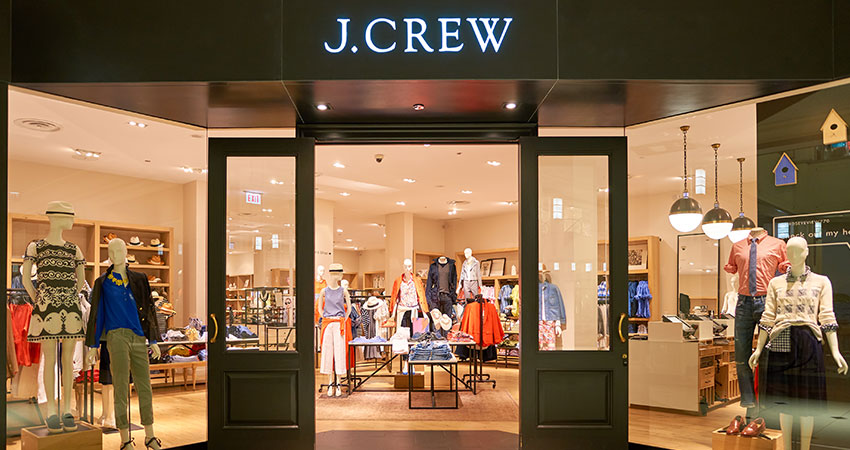Chinos Holdings, parent of preppy clothing retailer J Crew and women’s apparel and accessories seller Madewell, filed for Chapter 11 bankruptcy protection as part of a restructuring plan that calls for converting $1.65 billion of its debt to equity and securing $400 million in loans.
This is the first major retailer to file for bankruptcy during the coronavirus pandemic, although others including Neiman Marcus and JC Penney are also reportedly on the brink of seeking court-managed relief as store closures continue to severely impact already challenged chains.
The strength of the brand and its robust direct-to-consumer ecommerce business are factors weighing in J. Crew’s survival prospects, experts said.
If the plan is approved, major creditors Anchorage Capital Group, GSO Capital Partners and Davidson Kempner Capital Management LP, among others, will take over J. Crew through the debt-to-equity swap, while also providing the debtor-in-possession funding.
The reorganization plan calls for Madewell to remain with Chino Holdings, with Libby Wadle staying on as CEO. The parent company had been planning a spinoff of Madewell into a public company this spring to help pay down its debt, but its creditors weren’t keen on the idea, CNBC reported. In March, apparel retailer Cole Haan put off a planned IPO due to the economic volatility caused by the novel coronavirus.
“This agreement with our lenders represents a critical milestone in the ongoing process to transform our business with the goal of driving long-term, sustainable growth for J. Crew and further enhancing Madewell’s growth momentum,” said Jan Singer, CEO of J. Crew Group in a statement. “Throughout this process, we will continue to provide our customers with the exceptional merchandise and service they expect from us, and we will continue all day-to-day operations, albeit under these extraordinary COVID-19-related circumstances.”
Singer said as stores reopen, the restructuring plan “should enable our business and brands to thrive for years to come.” Former J. Crew CEO James Brett left after 17 months on the job, due to disagreements with the company’s board.
As of Feb. 1 there were 193 J.Crew stores, 172 J.Crew Factory outlets and 132 Madewell stores; the he latter was launched in 2006. Privately held J. Crew had an estimated $2.5 billion in 2019 sales, according to Moody’s, with $93 million in cash and loan maturities due in 2021, according to CNBC.
“J. Crew and Madewell are two classic American brands with deeply loyal customers,” said said Kevin Ulrich, CEO of Anchorage Capital Group in the statement. “We look forward to supporting Jan, Libby and the management team to recognize their full potential. The significant deleveraging contemplated by this agreement, coupled with J. Crew Group’s strategy to strengthen its robust ecommerce platform to drive continued growth in its direct-to-consumer segment, will position the Company for future success,”
Apparel has been a particularly hard-hit sector in retail during the COVID-19 crisis, with sales plummeting by more than 50% in March, according to Commerce Department figures reported by the New York Times. Overall, retail fell by 8.7% that month, the largest decline in three decades. The release of pent-up demand may not be enough to buoy many struggling retailers on the other side of the shutdown, as some sales may be lost forever.

